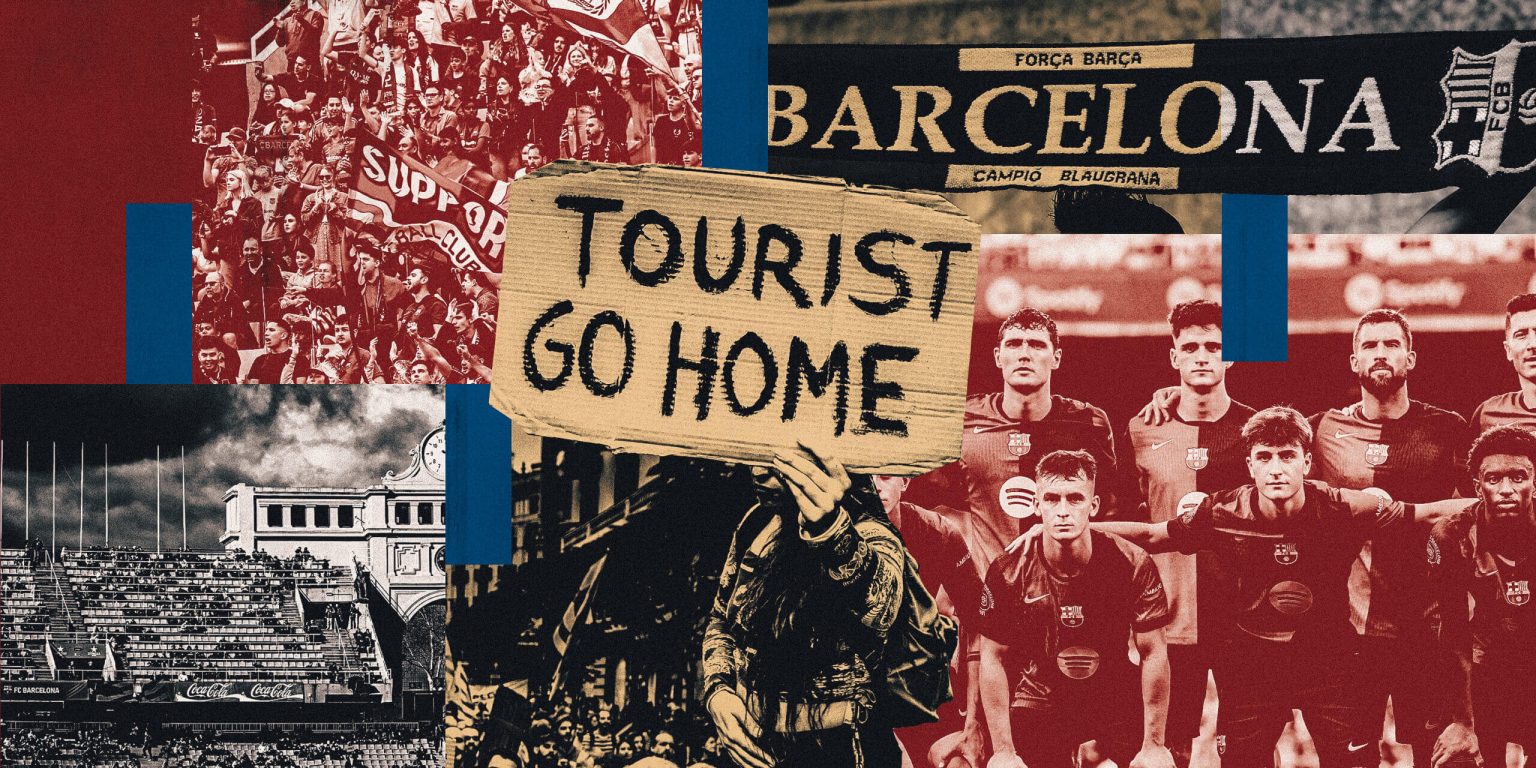Barcelona, a city known for its vibrant culture and allure to tourists, has seen an increase in anti-tourist sentiment amongst its local population. This dissatisfaction, manifesting in a multitude of protests and graffiti displays, is a response to the city’s over-reliance on tourism. In July, an estimated 3,000 to 15,000 locals took to the streets in protest, gaining international attention. Residents blame mass tourism for a slew of problems such as rising housing prices, degradation of heritage and erosion of labour rights, forcing the government to take action.
Contributing greatly to Barcelona’s attraction as a tourism destination is its world-famous football club, Barcelona FC. The club, whose museum is the most visited in Catalonia, relies heavily on tourism for ticket sales and revenue. On average, 52% of match tickets are sold to those outside Spain, greatly contributing to their financial success. However, the Covid-19 pandemic greatly affected the club’s finances and caused tensions among fans when a policy was introduced penalising season ticket holders who did not release their seats for resale if they could not attend games.
The city council, under growing pressure to combat excessive tourism, has outlined a number of steps to alleviate the situation, such as eliminating short-term holiday lets, limiting tour group sizes, and increasing the tourist tax surcharge. Barcelona FC is closely watching the situation, aware of how negative news might deter tourists from visiting the city. However, protests from local residents continue, as many believe these measures do not go far enough in addressing the root causes of the problem.
Representatives from the residents’ association are also wary of Barca’s role in the over-tourism issue. Whilst tourism has become an essential part of the club’s identity and financial model, the influx of non-local fans changes the dynamic within the stadium, often drawing criticism from long-term fans. This issue was highlighted when Eintracht Frankfurt visited Barca for a Europa League quarter-final match and seemingly flooded the stands with additional, unauthorised German fans, causing significant embarrassment for the local club.
The issue of mass tourism extends beyond the football field, deeply affecting the daily lives of Barca’s locals. In response to tourist behaviour in the city, resident Giulia says, “There are always drunk people, normally from England or Germany, screaming without their shirts on. Would you go out in the street in your home town like that? This is not Disneyland. People live here”. The residents’ resentment demonstrates the increasing need for constructive solutions negotiable for both sides.
Barca’s planned upgrade of its stadium, including an increase its seating capacity to 105,000 by 2026, further emphasizes the city’s reliance on tourism. Yet, the city’s residents remain hopeful that future measures will not only include a consideration for tourists, but also address the local community’s grievances, preserving Barcelona’s unique culture and heritage. The precarious balance between maintaining tourism revenue and satisfying local populace presents a significant challenge, setting a precedent for numerous other cities globally dealing with similar issues.


